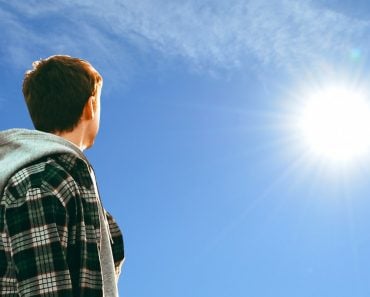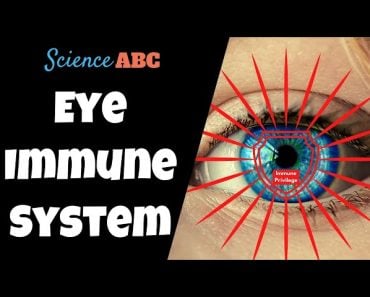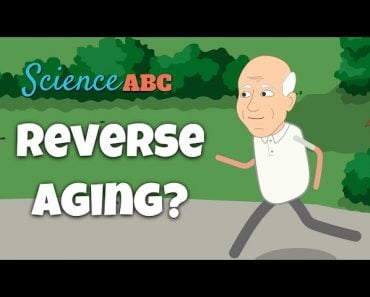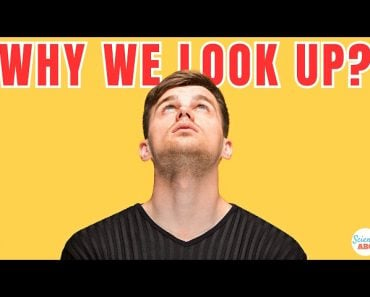If you need glasses, but don’t wear them, does your eyesight get worse?
Not necessarily. Corrective glasses help to compensate for a mismatch in corneal shape, which helps people see clearly and reduce eyestrain. However, this does not mean that one’s eyes are getting worse, per se, they’re just forcing the eyes to work harder.
From that first moment squinting at the blackboard from the back row, you knew the truth… your vision wasn’t perfect, and you’d probably have to start wearing glasses. In the brutal world of middle school, wearing glasses can be torture, particularly with the popular and timeless “Four Eyes” nickname still floating around.
This might lead you to avoid wearing your glasses, even if you really do need them to correct a vision deficiency or condition. This is seen in plenty of adults as well who want to keep up appearances and a youthful look. Failing vision is a natural part of aging, so ditching the glasses and straining one’s vision isn’t that unusual. The question is, if we should be wearing glasses, but choose not to, are we just making our vision worse?
Recommended Video for you:
What Does Having Bad Vision Really Mean?
When we talk about having “poor eyesight”, we aren’t describing a single condition. In fact, there are dozens of different problems that one could have with their eyes that might lead to vision impairment. As a child, blurry vision is usually due to refractive errors (being nearsighted or farsighted), astigmatism, or as a result of a lazy eye or crossed eyes.
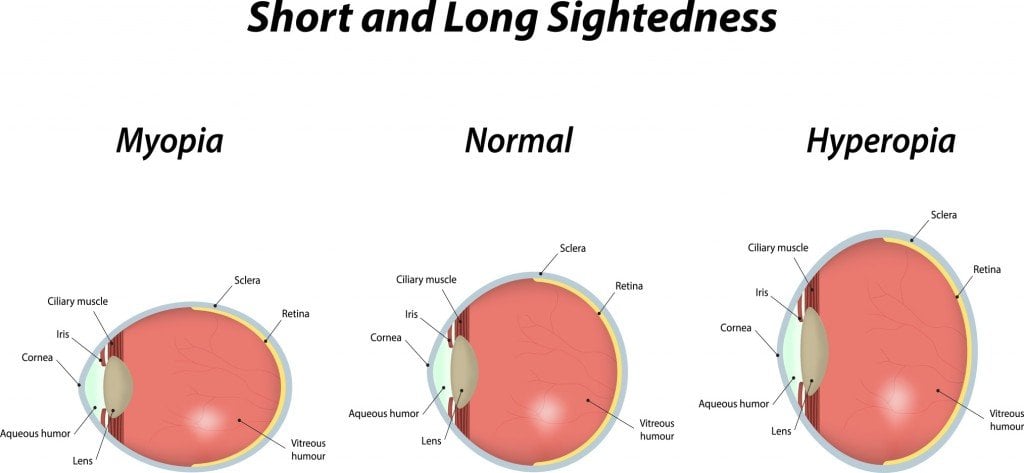
Myopia (nearsightedness) and hyperopia (farsightedness) are the most common forms of vision problems we see, but astigmatism is also quite common. These vision impairments are due to the shape and size of the cornea in relation to the eyeball, as the cornea is where the light and image is “focused” for us to see. When the light doesn’t focus properly, images appear “blurry” in certain conditions.
Although some people once believed that these basic problems were generally dictated by genetics, it turns out that a genetic predisposition for these conditions can also be worsened by behavioral habits, such as excessive screen time, reading, and eyestrain at a young age (next-generation smartphone users, we’re looking at you). It is this combination of both genetics and behavioral factors that can cause youthful vision problems.
For these conditions, glasses help to compensate for that mismatch in corneal shape, allowing us to see clearly and reduce eyestrain. If we are constantly squinting to see clearly, we are much more likely to experience headaches and an inability to focus (due to eyestrain). However, this does not mean that our eyes are getting worse, per se, we are just forcing the eyes to work harder and inviting a number of unpleasant side effects.
Also Read: Easy Tricks That Can Help You See Without Glasses!
Does Your Vision Get Worse If You Don’t Wear Glasses?
Short answer: Corrective glasses help to compensate for a mismatch in the corneal shape of the people who need them, which helps them see clearly and reduce eyestrain. If one has to squint constantly to see clearly, they are much more likely to experience headaches. However, this does not mean that one’s eyes are getting worse, per se, they’re just forcing the eyes to work harder and inviting a number of unpleasant side effects.
Also Read: Why Squinting Helps Us See Better?
Effects Of Not Wearing Glasses
Slightly more complicated vision problems that often occur in children, such as having a lazy eye (amblyopia) or crossed eyes (strabismus), are different than blurred vision issues. These problems can actually be corrected with certain types of glasses, forcing the eyes to “work” and bend back into appropriate shape, thus normalizing vision. If glasses aren’t worn when suffering from these conditions, then the problems can continue to get worse, or become a permanent problem.
How Does Age Affect Eye Sight?
There are other types of vision problems, of course, including cataracts, glaucoma, and macular degeneration. That final one is what slowly happens to everyone as they age. The result of oxidation and the impact of free radicals in the eye causes the gradual breakdown of our macula, which is why so many more people require glasses to see clearly as they age. Macular degeneration damages our ability to use central, focused vision, which is why it hinders activities like reading and driving. Ever wonder why reading glasses are almost always near at hand for people who are over the age of 50?
Again, with this type of vision problem, not wearing glasses at this stage of life won’t directly cause vision to suffer or worsen at a faster rate. It will cause eyestrain, just as not wearing glasses for myopia and hyperopia will do. That eyestrain will lead to headaches, an inability to focus, double vision, and other symptoms, which makes it even more difficult to see, and weakens the muscles in the eye.
Most vision issues are anatomical and physiological in nature, and wearing glasses helps to correct our vision back to normal, thus preventing strain on our eyes. This is not the same as “fixing” these problems; rather, it is a means of alleviating the symptoms in an efficient way.
A few other great ways to protect against vision problems is to minimize damage to the eyes, such as limiting sun exposure, maintaining proper hygiene, get regular eye exams, and ensure you’re consuming the right vitamins (beta-carotene from carrots is an excellent choice).
Conditions like glaucoma and cataracts can be fixed by various procedures and medications, and for those who really don’t want to deal with poor vision any longer, procedures like laser eye surgery can be a nearly permanent solution.
However, if you’re at a fancy social gathering and don’t feel like pulling out your reading glasses to see the menu, a little bit of straining might give you a headache, but it won’t send you spiraling down the road to blindness!



